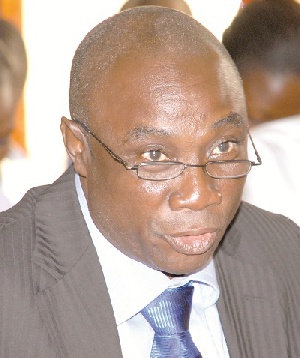S. O. Nyarko, an energy economist, has asked government to put effective short-term measures in place to address the current energy crisis in the country.
According to him, the mostly long term measures that have recently been announced by government would do little to actually address the problems.
Mr. Nyarko, who is the President of Enercom Africa, in a statement said, “Numerous deals have been undertaken recently to increase generation capacity in the near future. These are very necessary, but would do little to actually ease the pain Ghanaians are going through now. We need some effective measures now.”
He said the current load-shedding exercise, which has been intensified recently, was negatively affecting residential consumers and small businesses in residential enclaves.
Mr. Nyarko said key social infrastructure such as hospitals and schools are sometimes affected when there are spontaneous and sustained interruptions to power supply caused by system frequency deviations.
“There are however useful and proven innovative strategies and initiatives that are utilized in other countries to manage periods of generation shortfalls and reserve deficit,” he said.
Mr. Nyarko said Ghana must utilize innovative energy strategies that will help mitigate the impact of the current generation shortfalls.
According to him, such initiatives will provide quick solutions and eventually form part of the country’s long-term energy management strategy.
In the UK, for instance, such innovative strategies and initiatives provide useful means of balancing and securing the power system when reserve is eroded by plant shortfalls and coincident peak demand.
Ghana’s current total installed generation capacity is approximately 2.8GW.
“Even if all the installed generation capacity were available, the derated generation capacity would be about 2GW. With the current national demand peak around 2GW, this means that even if all the installed generation was available, there would still not be any useful reserve capacity.”
He said Demand-Side Reserve & Response would be one such innovative strategy that can be used to mitigate the generation shortfall by creating a proper and coordinated reserve from large energy users.
Mr. Nyarko said the innovative strategy would be backed by embedded generation, explaining that providers of the reserve and response would receive capacity payments to mitigate any impact on their financial portfolio to avert potential job losses.
“This will provide the incentive for large energy users to reduce or shift some demand to other periods or change their consumptions patterns.
“The technical and economic benefits of this innovative strategy would make it useful in dealing with our current power crisis and also form part of the long-term energy management strategy,” he said.
General News of Monday, 9 February 2015
Source: Daily Guide

















